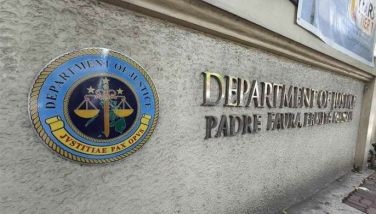Spanish media magnate Jesus de Polanco dies
MADRID (AFP) - Spain's Jesus de Polanco, who transformed a schoolbook publisher he founded in 1958 into Prisa, the largest media company in the Spanish-speaking world, died Saturday at the age of 77, his firm said.
Polanco, one of Spain's richest men and the chairman of Prisa, died in Madrid surrounded by his family due to complications from cancer, the media company said in a statement.
As one of the backers of top-selling daily newspaper El Pais in 1976, in the final years of the right-wing dictatorship of General Francisco Franco, he is credited with helping to restore Spain's independent press.
Prime Minister Jose Luis Rodriguez Zapatero said Polanco had played an important role in helping Spain return to democracy.
"He was a man of great courage who played a decisive role in the process of establishing political freedoms," he told reporters after attending a viewing of Polanco's body in Madrid.
Polanco used left-wing El Pais as a springboard to develop Prisa, which now employs 14,000 people in 22 countries.
The media group includes Cadena Ser radio, which like El Pais is close to Spain's Socialist government, as well as business paper Cinco Dias and television channel Cuatro.
Prisa also owns several radio stations in Latin America where its publishing companies in the music and educational sectors are active.
The company has a stake in Le Monde, the newspaper of record in France, as well as in Spanish pay-television firm Sogecable. It also controls Portugal's media firm Media Capital.
The Polanco family owns 64 percent of Prisa. Polanco himself ranked 11th on a list of Spain's richest people drawn up by daily El Mundo at the end of 2006 with an estimated net worth of 2.3 billion euros.
Forbes ranked him 287th on its list of the world's billionaires published in March.
Born on November 7, 1929 in Madrid, Polanco sold books to support himself as he pursued his degree in law before founding at the age of 29 the schoolbook publisher Santillana which later went on to become Prisa.
Throughout his career he defended the importance of a free press which he often described as "a pillar of society".
"You can never give too much praise to those who inform with independence and rigor," he said in a recent speech.
In the late 1990s he clashed with the conservative government of Prime Minister Jose Maria Aznar which had tried to stop Prisa's expansion, especially into the areas of television and cable.
At a Prisa shareholders meeting in March, Polanco -- who was proud of his straight talking -- crossed swords with the conservative Popular Party again, saying it was ready to do "absolutely anything" to regain power.
What Spain needed, he added, instead was "a modern, secular right-wing party".
The Popular Party reacted by boycotting Prisa publications for several weeks.
Three of Polanco's four children from the first of his two marriages hold senior positions in the management of Prisa.
Polanco designated his son Ignacio Polanco Moreno, a vice president of Prisa, to succeed him as chairman of the firm.
Prisa, which was listed on the stock market seven years ago, posted a net profit of 228.9 million euros in 2006, a 49.8 percent increase over the previous year, on revenues of 2.8 billion euros.
- Latest
- Trending






























